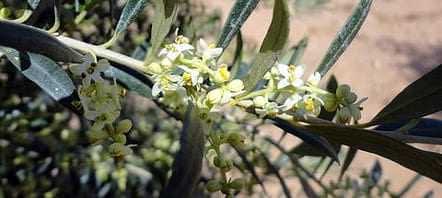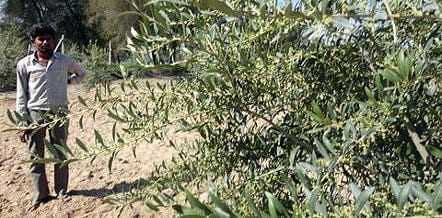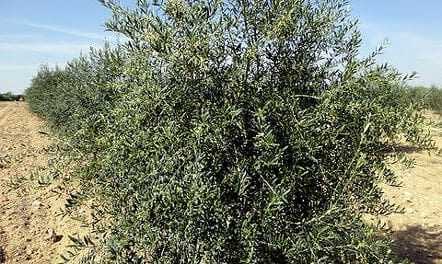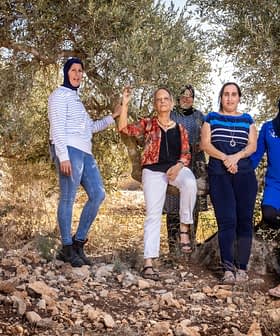
The olive cultivation project launched three years ago in India’s desert state of Rajasthan has now reached a flowering stage. The $3 million pilot project began with the planting of about 112,000 saplings from Israel across an area of 182 hectares in northern Rajasthan. Project head Surinder Singh Shekhawat informs that four farms in the desert areas have shown positive signs of flowering and olives will follow shortly.
The project under Rajasthan Olive Cultivation Ltd. was inspired from the successful cultivation of olives in the desert regions of Israel with the help of technology. Rajasthan experiences a climate similar to Israel, with cold spells and a certain chilling temperature that is essential to the cultivation of olives. Olives can grow in water-scarce desert regions because of their low water requirement.

The Indo-Israel joint venture project is proceeding well on track, and the first semi-commercial yield is expected this year. The project has received advanced sensor and drip irrigation technology from Israel as a part of the joint venture. This technology helps to gauge precisely how much water, nutrients and fertilisers the plants require for a healthy yield, while conserving water and other resources.
Gideon Peleg is the Israeli expert who works as the technical director. Peleg has also been consulting an olive farmer and olive oil producer in Nepal introducing tensiometer-controlled individual drip irrigation to enable profitable olive oil production for the first time in the high Himalayan plains.
The Indian government is closely monitoring the Rajasthan project and, once the pilot is a success, there are plans to replicate it. The technology will be provided to the local farmers at subsidised rates and they will be trained to use it effectively. Other states in north India are also watching the pilot’s progress with interest. Some experts in India are of the opinion that the country could turn into a prominent olive oil production center in the future and compete with the Mediterranean region by producing olives and olive oil at a competitive cost.

India’s low cost of farming labour may prove to be its competitive advantage, considering the fact that olive picking and pruning is a labour-intensive exercise. Furthermore, India has substantial cultivable parcels of land that are currently under-utilized, unlike the European nations. This could help to produce olive oil at an export-competitive cost and also expand the domestic market with affordable prices.
The pilot project in Rajasthan has two more years to go, and thereafter the real challenge will be to overcome all hurdles and achieve successful mass production of olives and olive oil in India. If all goes according to plan, India may turn out to be a new olive oil supplier to the world.



